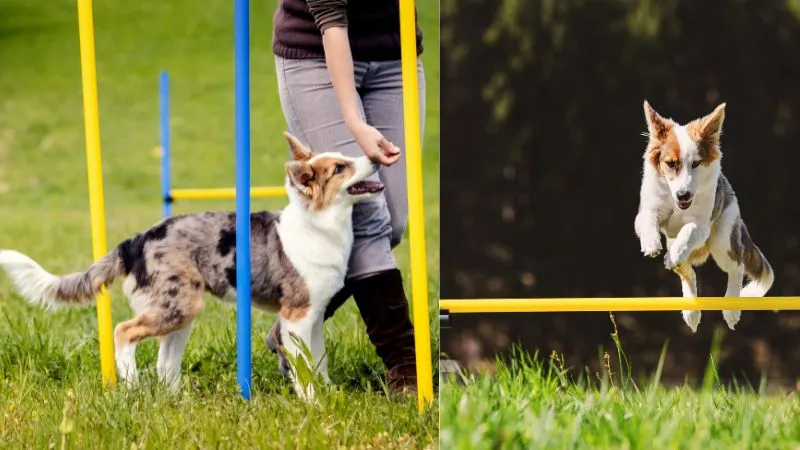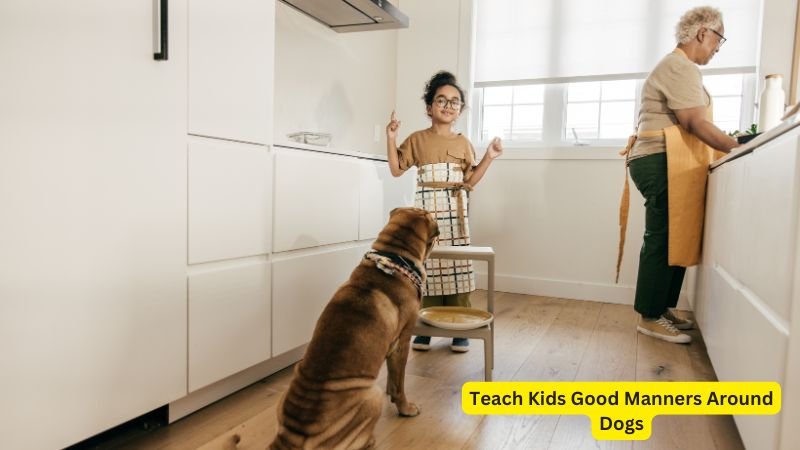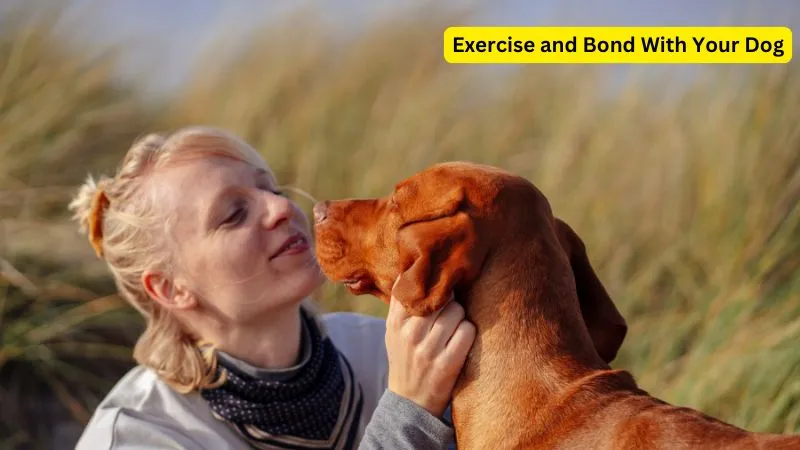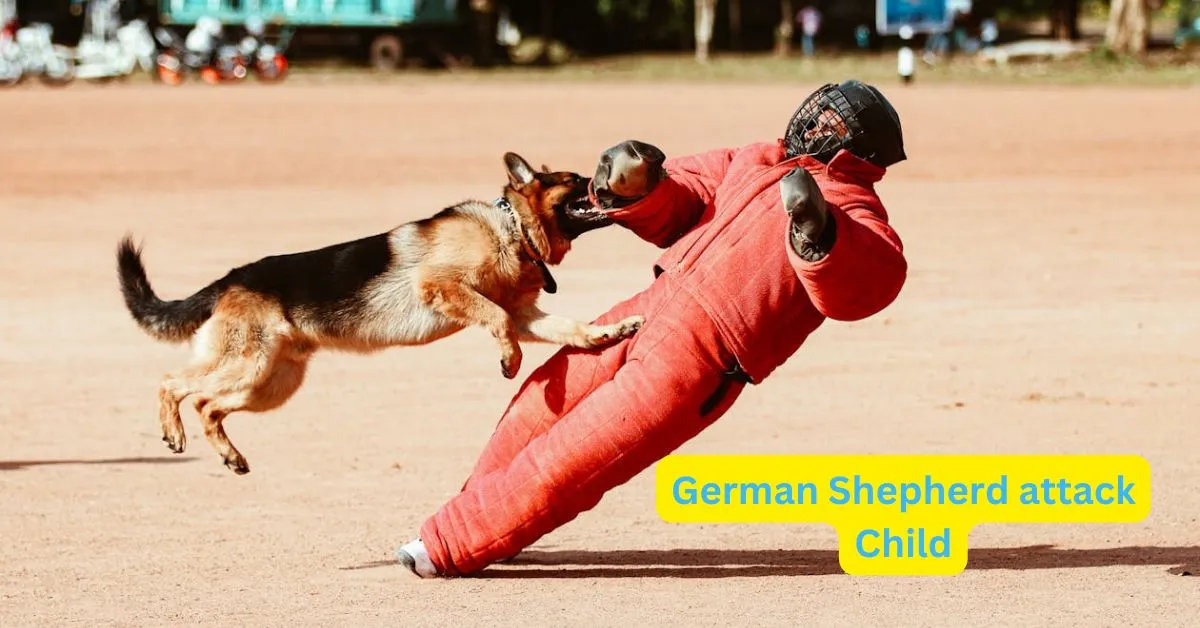Many people ask, Will a German Shepherd attacks child . This is a severe question for families with young kids. Some think German Shepherds might be dangerous for children, but this is not always true. A well-trained German Shepherd can be your baby or child’s safe and loving friend.
A German Shepherd can even be one of the best protectors you could hope for. But to keep everyone safe, there are a few essential things to remember. Training, supervision, and good behavior from the child and the dog are essential. German Shepherds are known for their loyalty, intelligence, and strong guarding instincts.
But like any big dog, they need the proper care to ensure they know how to behave around young children. So, let’s dive deeper to understand why some German Shepherds might act out and how to prevent this from happening.
Why Might a German Shepherd Attack Little Kids or Babies?
There are some situations where German Shepherds might not feel comfortable around children. However, these issues can usually be avoided with training, socializing, and teaching the child and dog how to interact. Here are some reasons why a German Shepherd could react badly to a child:
Lack of Training

If a German Shepherd has not been trained, they might not understand how to act around a child. Without training, a German Shepherd may react to sudden movements, loud noises, or other actions a child might make.
Poor Socialization
A dog that is not socialized around children may find them confusing or even scary. Socialization helps a German Shepherd understand that kids are safe and fun.
Feeling Threatened
Sometimes, a dog may feel a child is a threat if they pull on their tail or grab their ears. This doesn’t mean the dog is aggressive; it means it feels uncomfortable and reacts.
High Energy Levels
German Shepherds have a lot of energy and need exercise. A bored dog might feel stressed, leading to poor behavior. Regular exercise helps them stay calm and focused.
Social Media Trends
Some people try to capture social media trends with their pets, like dressing them up or making them do tricks. This can be confusing for a dog and might lead to uncomfortable situations.
Let’s examine these points and consider how to avoid issues between German Shepherds and children.
Tips to Keep Your Baby Safe Near a German Shepherd
Your baby is very likely safe around a well-trained and socialized German Shepherd. With the right steps, your German Shepherd will know how to behave around your baby and become a great family companion. Here are some steps to help make sure everyone stays safe:
Train Your German Shepherd Early

Training is essential for incredibly massive, strong dogs like German Shepherds. Basic commands like “sit,” “stay,” and “leave it” are suitable for all dogs. If your German Shepherd can follow these commands, it’ll easily control its excitement around children.
One case study from dog trainers showed that families who trained their German Shepherds early in obedience had fewer problems with behavior around children. They ensured their dog learned commands like “sit” and “stay” before introducing them to kids.
Keep Distance at First Meetings
For the first few times, it’s smart to keep some distance between your child and the German Shepherd. Let the dog sniff and observe the baby without getting too close.
Dogs learn a lot about the world by smelling things, so this helps them understand that the baby is part of the family. After a few introductions, your German Shepherd should start seeing the child as part of their “pack.”
Never Assume Your Dog Can’t Hurt
Even though German Shepherds can be gentle, it’s always wise to remember that they are strong animals. Never assume that they would never react to something a child does.
If a child pulls on a dog’s tail or pokes its eyes, it might respond, even if it’s generally calm. Keep an eye on your child’s interactions with the dog and correct any rough or bothersome tactics.
Prepare Your Dog for a Newborn
Get your German Shepherd ready if you’re bringing a new baby home. Play recordings of baby sounds to get your dog used to crying and babbling noises.
Set up the baby’s room and let your dog explore it so they get used to the new smells and sights. This will make it easier for your dog to adjust once the baby arrives.
Teach Kids Good Manners Around Dogs

It’s important to teach your kids how to behave around dogs. They shouldn’t poke, pull, or climb on the dog. Let them know that dogs also need space and quiet time.
Children who learn to act around animals are less likely to have problems with their pets. Many families have found that kids who treat dogs respectfully have a better bond with them.
Supervise All Interactions
Never leave a baby or small child alone with a German Shepherd or any dog, no matter how gentle the dog may seem. Always be present to ensure safe and positive interactions. This helps prevent unexpected reactions. Supervising your child and German Shepherd can prevent accidents before they happen.
Exercise and Bond With Your Dog

German Shepherds have lots of energy, so they need daily exercise. A dog that gets regular walks, runs, and playtime is likely to be relaxed and happy. By keeping your German Shepherd physically active, you’re helping them release any built-up energy that could lead to frustration or rough play.
Common Mistakes That Could Lead to Problems
Sometimes, families make simple mistakes that can lead to problems with their German Shepherd and child. Here are a few common issues:
Not Training the Dog Properly
Shepherds might need proper training to control the excitement or playfulness around children. Training helps them understand what’s okay and what’s not.
Leaving Kids Alone with the Dog
Trusting your dog entirely is tempting, but accidents can happen quickly. A misunderstanding could occur between your child and dog if you’re not there to monitor.
Assuming All German Shepherds Are the Same
Every dog is different, even within the same breed. Some German Shepherds are naturally more gentle, while others need more guidance to learn calm behaviour.
Not Exercising the Dog Enough
German Shepherds who do not get enough exercise may become agitated and anxious. This could lead to accidents or unwanted behaviour around kids.
Case Study: A German Shepherd Becomes a Family Protector
One family shared their story about their German Shepherd, Max, who became a best friend to their toddler. They followed all the tips: training Max, introducing him slowly, and supervising all interactions.
Over time, Max and the toddler formed a strong bond, with Max even showing protective instincts toward the child. The parents said that by training Maxwell and teaching their toddlers good manners, they were able to create a safe environment where everyone felt comfortable.
FAQs
Are German Shepherds naturally aggressive toward kids?
Not usually. German Shepherds can be very gentle, especially with good training and socialization. They are intelligent dogs who usually enjoy family life.
How can I help my German Shepherd accept my new baby?
Start by preparing your dog with baby sounds and smells. Let them explore baby items and introduce them to the baby slowly, keeping a calm environment.
Should I worry about my German Shepherd’s energy around my child?
Yes, a high-energy dog should get daily exercise to stay calm around children. Playtime walks or agility training can help your dog release energy.
Final Thoughts
A German Shepherd can be a fantastic family dog, but only if you take the time to train, socialize, and teach both your child and your dog how to interact. With the proper steps, German Shepherds are safe and loving companions for children.
They offer protection, loyalty, and a unique bond that can last a lifetime. So, if you’re worried, remember that a bit of work upfront goes a long way toward a safe and happy relationship between your German Shepherd and your child.



